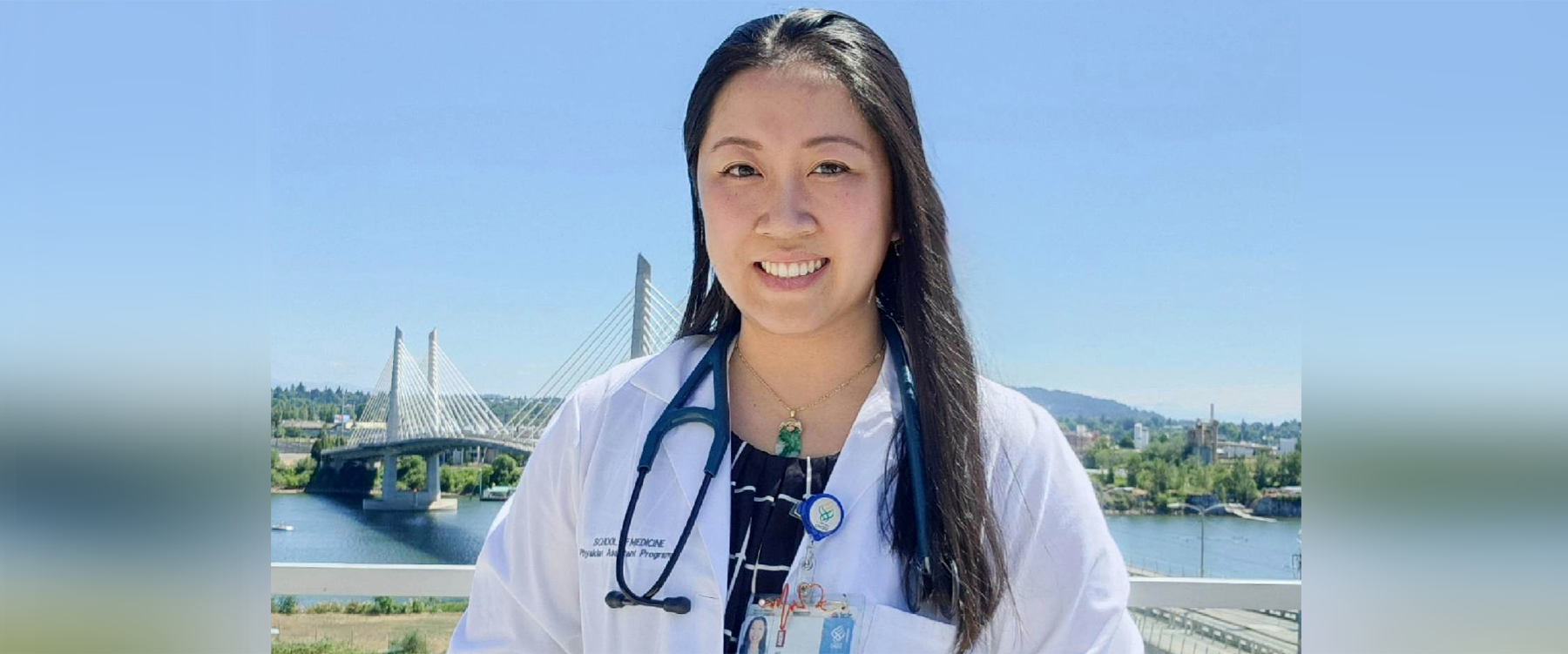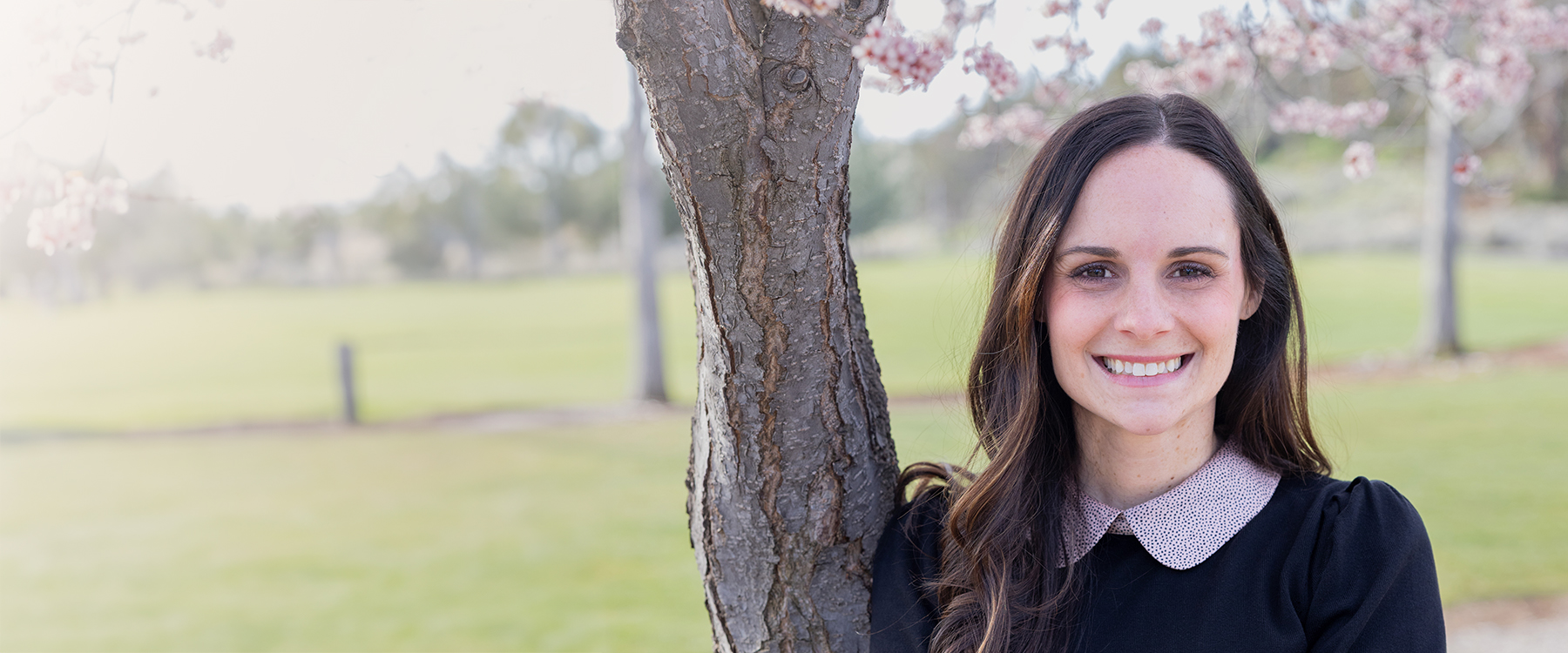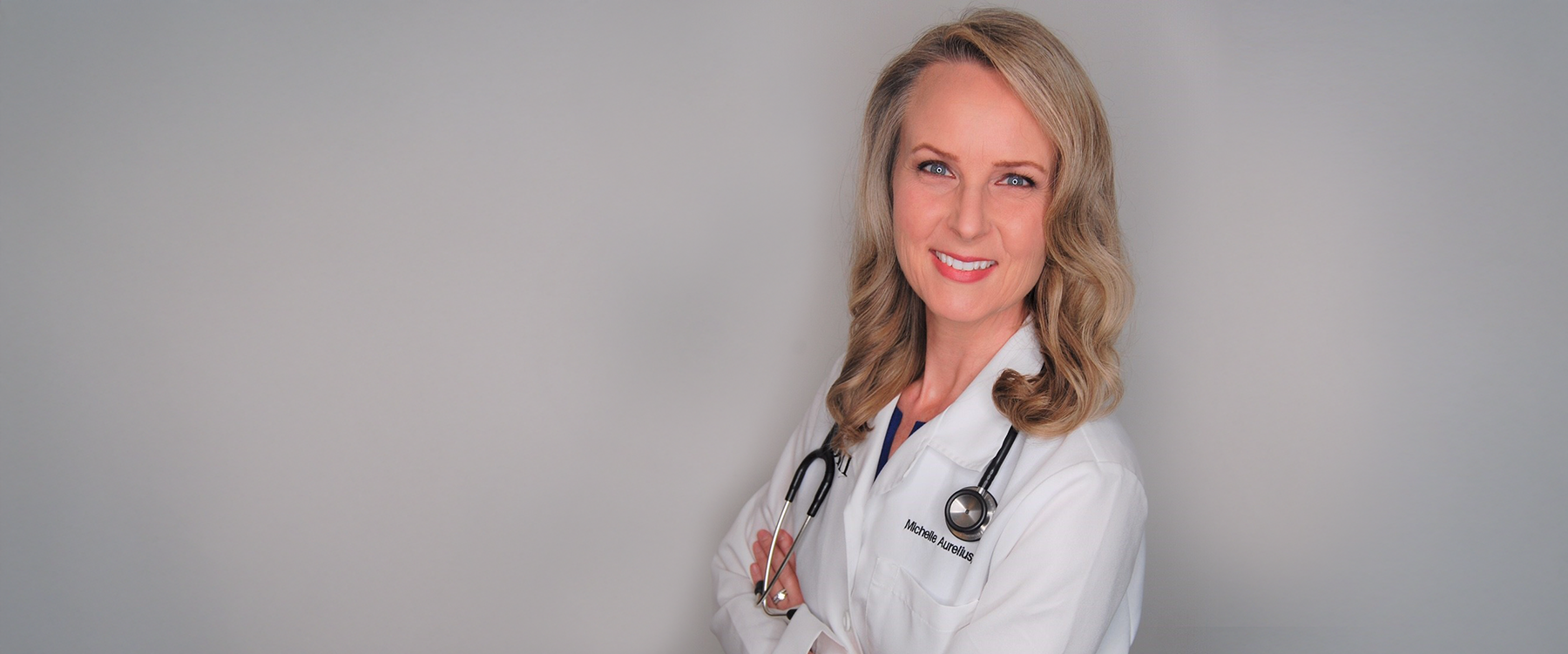Emily Sabins has a big heart for small communities.
For many people, Roseburg, Oregon, might be just another small city along Interstate 5 — one more pit stop to drive through on the way north to Washington or south to California.
But for Sabins, the cozy town of less than 24,000 people is home. Growing up in Roseburg, she picked up all the usual small-town ideals like the value of hard work and the power of community. The most pressing drawback, however? The lack of quality health care.
The health care gap between Oregon’s urban and rural regions is a significant issue. Sabins, a second-year student at OHSU pursuing a Master of Physician Assistant Studies degree, hopes to be part of the solution.
“Being from rural Oregon, I have a heart to serve those smaller communities where health care isn’t always easily accessible,” she said. “I feel called to serve where there is a need and do my best to continue fighting health care disparities in my community.”
“OHSU was where I aspired to complete my master’s education because I was confident that it would not only shape me into a competent physician assistant, but it would also shape me into the mindful and informed provider I aim to be.”
Emily Sabins
Sabins is a recipient of OHSU’s Scholars for a Healthy Oregon Initiative (SHOI) scholarship. Established in 2013 and administered by the OHSU Office of Rural Health, the SHOI scholarship aims to address the increasing cost of tuition and the rural health care gap in Oregon. The scholarship provides full tuition, and in return, recipients agree to practice in rural or underserved communities for one year longer than the years they received funding.
Sabins, however, is committed for longer.
“With someone who’s already passionate about rural care, wants to establish a connection in a rural community and practice there long term, that’s what SHOI is really for,” she said. “SHOI allows me to continue my service as a permanent rural provider.”
Sabins, a first-generation Asian American whose parents immigrated to Oregon from Vietnam, has wanted to be a physician assistant since her sophomore year of high school. The more she discovered about the importance of a PA’s role within the health care team, the more her interest in the field grew. She shadowed PAs in high school and learned most are able to practice at the top of their medical scope; they are able to see their own patients, order and interpret labs, and prescribe medications.
“I feel called to serve where there is a need and do my best to continue fighting health care disparities in my community because rural Oregon deserves stable providers.”
Emily Sabins
For Sabins, who was eager to make an impact on patients and valued the versatility of a PA, it was perfect.
“I chose the PA pathway because I seek to empower communities in a career that contributes to a collaborative team and provides lifelong learning,” she said.
After earning her undergraduate degree in biohealth sciences with a focus on physician assistant studies from Oregon State University, Sabins applied to the OHSU School of Medicine Physician Assistant Program in 2021.
“OHSU was where I aspired to complete my master’s education because I was confident that it would not only shape me into a competent physician assistant, but it would also shape me into the mindful and informed provider I aim to be,” she said. “I admired that diversity, ethics, health promotion and disease prevention are interwoven into OHSU’s curriculum.”
Transitioning into the academic rigor of PA school was not an easy feat. Sabins, along with her cohort of 32, have been urged to leave competition at the door and embrace collaboration. Fighting to abandon the mindset of perfectionism and comparison has helped Sabins thrive and push past her comfort level.
The support Sabins receives from her peers and faculty has attributed to her success in the program so far. Reflecting on the process and her growth after her first year, she is amazed at how much she has adapted to new situations and overcome challenges.
Sabins spent the first year of the program in didactic classroom learning. The second year will take her into clinical rotations — a different challenge and an equally exciting opportunity. Upon graduation, Sabins hopes to start building genuine connections with patients and communities at an underserved family practice in primary care in Oregon.
Wherever Sabins’ journey leads, she knows her impact will be felt.
“I am committed to serving in a rural clinic permanently,” she said. “I have seen the negative impact that short-term provider turnover rate has on patients’ health outcomes and their perception of health care. … I feel called to serve where there is a need and do my best to continue fighting health care disparities in my community because rural Oregon deserves stable providers.”




